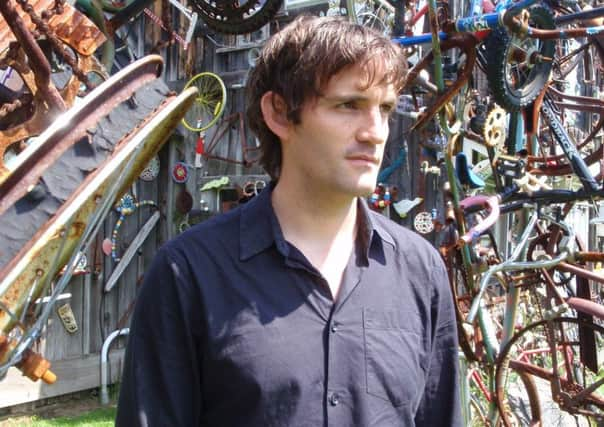Book review: Dalila, by Jason Donald


Jason Donald’s debut novel, Choke Chain, was an uncompromising piece about the lives of impoverished white South Africans, written in a style which owed something to Raymond Carver’s laconic, chiselled sentences. The eponymous heroine of his new work, Dalila, is a 20-year-old woman from Kenya, who, as the story begins, is attempting to get into the United Kingdom on a tourist visa in order to claim asylum. There is some fine writing in this novel, and a noble attempt to empathise with a marginalised individual, but too often it reads like a case study crossed with an opinion piece.
Dalila’s situation is complex in that she is not ostensibly fleeing political or religious oppression; but she is escaping from an intolerable and abusive situation. When she arrives in London she is, predictably, at the mercy of people traffickers as duplicitous and criminal as those she has left behind. Her dreams of being a journalist and returning to her studies seem perpetually deferred. After the initial betrayal, homeless, penniless and with barely any belongings, she is rescued by a church charity in a scene which is slightly too deus ex machina. Of course, the charity has experience in helping people gain asylum, and we follow the tortuous process that leads to Dalila being relocated to Glasgow – the city where Donald studied Creative Writing.
Advertisement
Hide AdThe details are all perfectly convincing: the grind of bureaucracy, the depression suffered by many asylum seekers, the specifics of the official forms, the amount of money she is given each week to live on (a paltry £37.41), the Facebook conversations with former friends back in Kenya. She is housed in Govan with another woman, Ma’aza, next door to a Turkish family and a couthy Scots wifie and some neds straight from central casting, then she befriends an older refugee called Daniel and is taken under the wing of the saintly Phil at the “Solidarity Centre”. There is a certain amount of inherent drama – will Dalila be given indefinite leave to stay? – and some expediently manufactured conflict in terms of the vengeful original people traffickers.
There are some attempts at literary flourish. Dalila constantly observes and notices what is different – street food, weather, motorways – and what is the same – soft-drinks, security cameras, protesters. The literary critic Roman Jakobson thought that part of the novel’s strength lay in what he termed “defamiliarisation”, and there would have been the opportunity here to explore more subtly how an outsider views a culture we inhabit. But the same/different litany doesn’t really achieve this, and seems to be a tricksy metonym for the question of whether Dalila herself is the same or different. There are passages of very fine writing – more could have been made, for example, of a well-observed scene in an English language class. Incidentally, having Dalila have such good English in some ways bypasses the possibility of extreme disorientation. The constant mispronunciation of Dalila’s surname is a neat touch; Ma’aza’s diatribe against their reduction to human rubbish, to something shameful, is done with passion.
Daniel gets a long speech towards the end of the novel about being in prison in Uganda, where another inmate explains to him the importance of “learning to lose”, which is by far the most powerful writing in the book. At other points the prose is merely perfunctory. The structure allows for a kind of asylum-seeker picaresque, so the stories of other individuals punctuate the text. Many of these are memorable and shocking but I couldn’t help but wonder if they might have been better as short stories.
The problems with Dalila are manifold. I am in no way questioning Donald’s right as a white man to write from the perspective of a black woman, but would note that other works that deal with emigration, asylum and refugees – for example, NoViolet Bulawayo’s We Need New Names, Chimamanda Ngozi Adichie’s Americanah and Nadifa Mohamed’s The Orchard Of Lost Souls – are more ambitious, linguistically and structurally, more daring, and have the grit of reality that the realism of ARC cards, section C5 on a Statement of Evidence form, or the architecture of Dungavel cannot convey. There is a faintly Manichean outlook in the book: I lost track of how often a Home Office employee was characterised as fat, or cold, or bored; while the asylum seekers never develop beyond tragic back-stories, and their (white, liberal, middle class) supporters are paragons of virtue. A novel should not be judged on whatever political stance it takes, but it must be more than a political stance to be a novel.
There exists a means of giving a voice to the voiceless and alerting readers to the stories they do not hear, or want to hear, in high literary form, and without the condescension that creeps into this novel. Dave Eggers’ work straddling fiction and non-fiction, particularly What Is The What and Zeitoun, as well as the anthologies his McSweeney’s imprint have produced, are heartbreaking acts of authorial emptying, as Eggers sets himself aside to ventriloquise and memorialise other people. Had Donald produced a Voices From Dungavel it might do more to advance the causes he clearly cares about. As it is, Dalila aches with worthiness.
*Dalila, by Jason Donald, Jonathan Cape, £16.99